- Home
- Alice Hoffman
At Risk Page 4
At Risk Read online
Page 4
“Hey, buddy,” Ivan says to Charlie. He eyes the French toast. “Looks good.”
Polly comes down from upstairs. She’s been sponging Amanda down with cool water, just as the doctor told her to do when she phoned during the call-in hour.
“Did you get the Tylenol and the Gatorade?” she asks Ivan.
Ivan produces the Tylenol. “No Gatorade at Larson’s,” he says.
“That’s all you tried?” Polly says, furious. “One damn store?”
Charlie feels bad for his father; he tends to forget things, too, especially when he runs errands.
“I’ll go back out,” Ivan says.
Polly knows he is supposed to prepare for the upcoming seminar in Florida; he wanted to get to work early and try one more rewrite.
“Don’t bother,” Polly says. “I’ll go.” She turns to Charlie. “You.”
“I didn’t do anything,” Charlie quickly says.
“Stay with Amanda,” Polly tells him.
“I can’t,” Charlie groans. “Sevrin’s waiting.”
“Let him wait,” Polly says.
Polly doesn’t kiss Ivan good-bye, and she doesn’t look at either of them as she grabs her car keys. Charlie and Ivan exchange a guilty look.
“She’ll cool off,” Ivan says.
Ivan grabs his backpack and follows Polly out, hoping to make up in the driveway. Charlie finishes his French toast, then goes upstairs to look for the net he and Scvrin will need. Amanda’s door is open and the room is dark. All the shades have been pulled down. Charlie stops at the door and looks in.
“Hi,” Amanda says from under the quilts.
Charlie comes into the room and switches on the light on the night table. “Mom is so crazy about keeping things dark whenever anyone’s sick.”
“Yeah,” Amanda says.
“I’m going to look for my net,” Charlie says. “Me and Sevrin are going collecting.”
“Good luck,” Amanda says.
She’s whispering because her sore throat is really bad, the worst she can remember. She feels cold no matter how many quilts are piled on top of her. This is worse than when she had the chicken pox and couldn’t sit down, not even to go to the toilet. Worse than when she cried all night because her skin itched.
“Well, go ahead,” Amanda tells Charlie. “Go meet Sevrin.”
Her throat hurts so much she may start to cry, and she doesn’t want Charlie to see.
“I’ve got to stay with you,” Charlie tells her. “Mom,” he says apologetically.
“Oh,” Amanda says, understanding completely. Her mother’s done the same thing with her, forcing her to spend time with Charlie when she doesn’t even want to be in the same room with him.
Charlie sits down on a chair near the bed. “Want me to put on a tape for you?” he asks. “Duran Duran?”
Amanda tells him no, she has a headache. They can hear kids down the block, enjoying their freedom.
“Just don’t blow your germs this way,” Charlie says. “Only ten more days till prison.”
That makes Amanda smile. She can’t wait for school to start; she’s been looking forward to sixth grade all summer. With Helen Cross graduated and Evelyn Crowley getting sloppy, Amanda will be the best gymnast on the team.
Charlie sits next to her, thinking about horseshoe crabs. If he bikes the long way, and rides along the marsh, he may find some on his way to meet Sevrin. Horseshoe crabs are endlessly fascinating to him, since they were here before the dinosaurs. He cannot understand why no one has discovered the secret of how they managed to survive. Charlie is already half an hour late and Sevrin is probably mad at him by now. His mother does things like this to him all the time, and to Amanda, too. She doesn’t understand when they have appointments to keep or phone calls to make. She forgets they have lives of their own.
“I could bring you back a newt,” he tells Amanda. “You could keep it in a terrarium.”
He realizes then that his sister has fallen asleep. She’s holding onto the quilt his mother always covers them with when they’re sick. It is blue and white with a border of stars and a few boxes of red in the center. They used to believe it was this quilt that made them well, and if both of them were sick they fought over it. Charlie reaches up and turns off the lamp on the night table. He sits in the chair, his hands on his knees. He finds himself counting the minutes until his mother comes back. In the dark he can see the white stars in the border of the quilt, whiter even than bones.
When twenty-four hours have passed, and Amanda’s fever has not gone down, Polly takes her in to be examined. Ed Reardon has been the kids’ doctor for seven years, ever since they moved to Morrow. He does a routine throat culture, takes Amanda’s temperature, examines her ears, and then, concerned mostly with the swollen lymph nodes he’s found all over her body and the girl’s weight loss, decides to run some blood and stool tests. He tells Polly they’ll have the results back from the lab by tomorrow or the next day, and in the meantime Amanda should continue taking Tylenol. Absolute bed rest, even though Amanda puts up a fight and insists she’s feeling better. He would never mention that the first thing he thinks of when he sees symptoms like Amanda’s is cancer.
Ed Reardon has seen nearly a dozen kids in the past week with a virus that combines a high fever and vomiting, and he thinks, once again, that he needs a partner and at least one more person on his office staff. He has tomorrow off, and he needs it. He knows he should have longer office hours and spend less time with each patient, his accountant has told him this. But finding a way to see more bodies per hour is not why Ed chose pediatrics. He has three kids himself, a two-year-old son and two daughters, five and eight.
“It’s not fair,” Amanda says as she gets dressed.
“She’s worried about practicing,” Polly explains, as she quickly signs the permission slips for all the lab tests. “Gymnastics.”
“Don’t worry,” Ed Reardon tells Amanda. “I can tell just by looking at you. You’re better than Mary Lou Retton.”
Amanda ducks her head, suddenly shy, but Polly can tell she’s pleased. “Thanks,” she says to Ed after Amanda has gone to the bathroom to leave urine and stool samples. “She seems better already.”
Polly does not add that Ed has made her feel better too. He always does. High fevers make her crazy with fear. Ivan thinks she overreacts, but Ed Reardon listens to her; he seems to trust her instincts.
“She’s a great kid,” Ed tells Polly. “I’ll bet you say that to all the mothers,” Polly teases him. “I most certainly do not,” Ed tells her. “Ten to one her fever subsides by morning.”
He’s right. Amanda’s fever breaks sometime in the night, and by breakfast time her temperature is normal. She’s still too tired to do much more than sit on the couch and watch TV, and that suits Charlie since she might have wanted to come to the pond with him and she always wants to go swimming. Amanda doesn’t have the patience to watch for specimens.
Charlie and Sevrin filled all the Mason jars with newts yesterday, and last night they sneaked into Sevrin’s basement. Half the newts were given sugar-water; the control group had only lettuce and water. But now the boys meet again, back to look for something that got away yesterday. At least Charlie is. Sevrin was busy eating a sandwich and he missed it. He doesn’t quite believe that the turtle was at least three feet across.
“Bullshit,” Sevrin says now. He is belly down, his hands in the cool water, his knees and bare feet dark with dust. He’s brought his dog, a golden retriever named Felix, whom they have to keep on a leash so he won’t make a dash for the water. “No turtle could get to be that size in a pond this small.”
“A mutant,” Charlie suggests. “Maybe someone’s been dumping radioactive waste in here.”
“Oh, yeah, sure,” Sevrin says, echoing his mother’s cynical tone. “The one that got away.”
“We’ll see him,” Charlie says. “We’ll sit here all day if we have to.”
Charlie reaches into his backpack and pu
lls out two cans of orange soda and two Almond Joys. Sevrin leans back and takes one of the sodas. He snaps the top open loudly.
“Quiet!” Charlie whispers, annoyed.
Sevrin wrinkles his nose and guzzles his orange soda.
It’s hot and Charlie takes off his Red Sox T-shirt. If they weren’t waiting for the turtle, he’d dive right into the pond. Instead, he holds the cold can of soda against his bare skin. Blue dragonflies skim over the surface of the water. There’s a new housing development through the trees, but the boys aren’t aware of it. Small deer still come to the ponds and marshes in Morrow; Charlie knows you can see them at dusk if you’re quiet enough.
“Just think, tyrannosauruses might have hung out here,” Sevrin muses. “They could have attacked a brontosaurus right here where we’re sitting.”
Charlie opens his can of soda and drinks deeply. He doesn’t bother to tell Sevrin that tyrannosaurus and brontosaurus lived eighty million years apart, and that no fossils of either have been found anywhere near Morrow. Charlie’s been told he’s a know-it-all enough times for him to have learned when to keep his mouth shut.
Sevrin sits up and takes a candy bar. He puts his feet in the water, and small startled frogs jump into the pond. Sevrin looks back at Charlie apologetically.
“You think our mothers are going to get rich from this book they’re doing?” Sevrin asks. Felix sits facing him, panting, waiting for some chocolate to fall. Sevrin finishes his candy bar and puts the crumpled wrapper in his pocket. “Maybe it will be a best-seller. Maybe we’ll all be millionaires. Boy, my father will go nuts. He always tells my mom she should go out and get a real job.”
“My mom didn’t say anything about being a millionaire,” Charlie says.
“You know what I’d buy?” Sevrin says. “First a motorcycle, and then a yacht.”
Charlie likes being with Sevrin because he doesn’t have to talk. Even when Sevrin asks a question, he doesn’t necessarily expect an answer. It’s been this way since they were three years old. Sevrin dragged his cot next to Charlie’s at nursery school and that was it, they were best friends. As far as Charlie is concerned, he never needs another friend as long as he has Sevrin.
“Gonna eat that Almond Joy?” Sevrin asks.
Charlie has taken one bite, but he hands the rest of the candy bar to Sevrin. It’s too hot for chocolate; it melts in your hands.
“If I could live on a yacht,” Sevrin goes on, between bites of Charlie’s candy bar, “I’d never go to school. I’d dive for starfish. I’d never hang up my clothes in the closet because there wouldn’t be any closets.” He holds out his hands so Felix can lick off the chocolate.
“There wouldn’t be any food except Spaghetti-Os,” Charlie says.
“Right. Orange soda and Yoo-Hoo to drink.”
A kingfisher flies over the pond, and Charlie nudges Sevrin with his foot. Sevrin nods and puts down the sighting in the log he’s been keeping for them.
“There’d be a pool on the yacht,” Sevrin whispers.
“With one of those curlicue slides,” Charlie whispers back.
There is a plunk in the water, as if the kingfisher had dropped a stone into the pond. When Charlie narrows his eyes he sees that the stone is moving. He nudges Sevrin again, and Sevrin automatically looks up, toward the kingfisher.
“I’ve already got him,” Sevrin says.
From this distance it looks like a plank of mossy wood, or an empty barrel. Except that Charlie can see its eyes now. Charlie has not dared to tell Sevrin what he hopes. It’s so irrational, so unscientific, but he hopes they have stumbled upon a cryptodire, a turtle that developed in the Triassic period, alongside the dinosaurs, two hundred thirty million years ago. And when he thinks about it, it doesn’t really seem so impossible for one to exist when all modern-day turtles are relatives, virtually unchanged from the ones that survived what the dinosaurs could not.
Water sloshes against the thing that looks like a barrel. Charlie kicks Sevrin, hard, and Sevrin turns to him.
“Hey!” Sevrin says.
Charlie nods toward the pond and Sevrin follows his gaze. The turtle is getting closer.
“Holy shit,” Sevrin says.
“That’s him,” Charlie whispers.
Sevrin begins writing furiously in his log. Charlie watches as the turtle gets even closer, before it veers away and dives.
“No one would believe us,” Sevrin whispers.
“Who cares,” Charlie whispers. “We know what we saw.”
They stay for another two hours, forsaking lunch, but the turtle doesn’t resurface, or, if it does, it’s hidden by weeds. Late in the day they get on their bikes reluctantly and head over to Sevrin’s. Unlike many of the houses in Morrow, which are mostly painted white with black or green shutters, Sevrin’s house is blue, with yellow trim. There are hanging plants attached to hooks all along the porch, pots of fuchsias and trailing pink geraniums. They leave the dog outside and go into the kitchen. Sevrin and Charlie can hear the furious beat of Betsy’s typewriter. The boys move quickly, grabbing a jar of peanut butter, a loaf of bread, four Devil Dogs, and a sack of sugar, and they’re down the basement stairs before Betsy can hear them. Betsy often wants to talk to them about something mean ingful, when all they want is to be left alone to feed Sevrin’s white rat or watch Star Trek.
Down in the basement, Sevrin makes the sandwiches while Charlie mixes up more sugar-water for the newts. The turtle is such a spectacular find, they still can’t talk about it. Not yet. That’s the thing none of their parents understands. You don’t have to talk all the time. You can sit right next to each other on old wooden stools and wolf down two peanut butter sandwiches and two Devil Dogs apiece and not have to say a single word. The newts that are being fed sugar-water are looking good, much more energetic than the control group. Charlie makes notes in their log, while Sevrin slaps some peanut butter on the cover of the peanut-butter jar and feeds Cyrus, the rat.
They don’t go upstairs until Sevrin’s father is home and Betsy calls them up for dinner. Actually, she calls Sevrin, but when she sees Charlie she sets another plate.
“Does your mother know you’re here?” Betsy asks Charlie while Sevrin recaps the peanut butter and puts it back in the cabinet.
“Yeah,” Charlie says. “She must.”
Betsy points to the phone and Charlie calls home. He hates talking on the phone; he doesn’t understand what Amanda and Jessie Eagan can possibly find to say for all those hours they talk to each other.
“Tell her you’re sleeping over,” Sevrin coaches Charlie.
“Ask her,” Betsy says pointedly.
Charlie compromises and says, “It’s okay if I sleep over,” to Polly. It’s not really a question, and Charlie knows his mother won’t give him any trouble; whenever Charlie or Amanda is sick Polly’s so distracted she gives in easily to the one who is well.
“Roger,” Charlie says when he hangs up the phone.
“Over and out,” Sevrin says as they sit down at the table, waiting to be fed.
“How about you guys helping out,” Sevrin’s father, Frank, says when he comes into the kitchen.
Sevrin’s father is big on asking them to help out, although Charlie has noticed that Frank never seems to do much of that himself.
“We’ve had an exhausting day,” Sevrin tells his father.
“Oh, really?” Frank says.
“Oh, yeah,” Sevrin tells him. “A mammoth day.”
“A cryptodire of a day,” Charlie says, and he and Sevrin both laugh hysterically.
Betsy dishes out reheated lasagna, and when Frank looks displeased she says, “Sorry. I’ve been working.”
Betsy and Frank are going to fight tonight, the boys can tell. They fight over just about anything, Charlie thinks it’s sort of like watching TV for them. But that’s all right, it will be easier for Sevrin to talk them into letting him and Charlie sleep out in the tent set up in the backyard if they want some privacy. By nine, Frank and Bets
y are upstairs in their bedroom, shouting, and Sevrin and Charlie have already set themselves up in the tent with a sleeping bag, two blankets, the five remaining Devil Dogs, a flashlight, and a canteen of cranberry juice.
They’ve been doing this all summer, sometimes twice a week, with Charlie pointing out all the constellations Ivan has taught him: Orion with his white belt, Aquarius with his luminous pitcher of water. But tonight the sky is so beautiful, so starry and so black, that the boys silently edge closer to one another. It’s almost as if they’ve forgotten all they know, that stars are made of gases and are bigger than the earth. They are beneath a huge, black bowl, transfixed by a million points of light. They’re only kids, maybe they shouldn’t be out here all alone. Maybe a meteor will plummet to earth and crush their tent, maybe Sirius will fall out of the sky. When they crawl into the tent they agree to keep the flashlight on all night, they let the dog come into the tent with them, despite his snoring, and they sleep close together, their backs pressed up against each other.
It’s hot, even at midnight, and Charlie and Sevrin both sleep fitfully, but when they wake up neither admits to ever having been scared. They go into the house and, ignoring the breakfast Betsy left out for them before she went up to her study, eat two uncooked Pop-Tarts apiece.
“Let’s not mention the turtle to anyone until we can document the sighting,” Charlie says.
“Absolutely,” Sevrin agrees.
Charlie knows the best way to prove that the turtle exists is a photograph, but he doesn’t know how to get hold of a camera. His mother would never let him touch her Minolta; she treats that camera as if it were gold, and he hasn’t seen the old Polaroid for ages.
Charlie has to be home by noon so he can stay with Amanda—be her servant and bring her Tylenol and juice, while his mother finally takes the Blazer in for new shocks. Sevrin rides Charlie halfway home, and they stop where they always do, on the corner of Ash and Chestnut, exactly halfway between their houses.

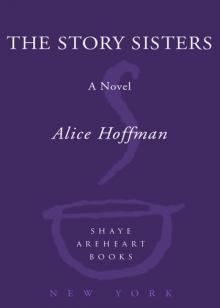 The Story Sisters
The Story Sisters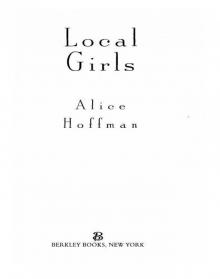 Local Girls
Local Girls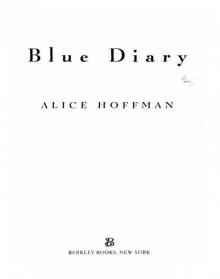 Blue Diary
Blue Diary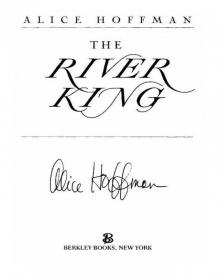 The River King
The River King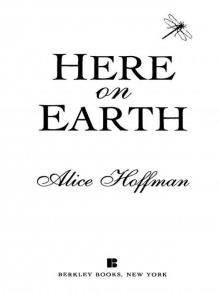 Here on Earth
Here on Earth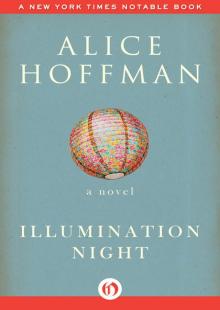 Illumination Night: A Novel
Illumination Night: A Novel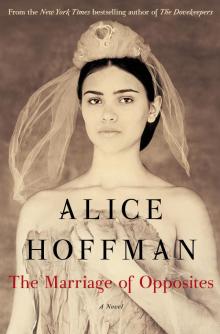 The Marriage of Opposites
The Marriage of Opposites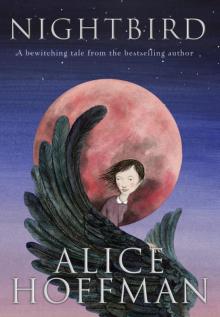 Nightbird
Nightbird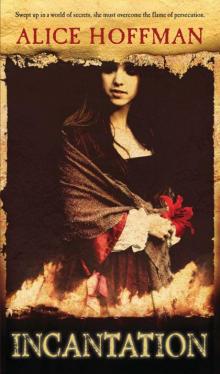 Incantation
Incantation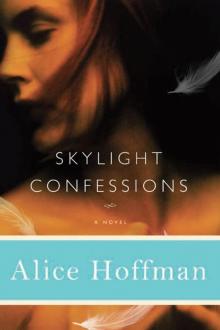 Skylight Confessions
Skylight Confessions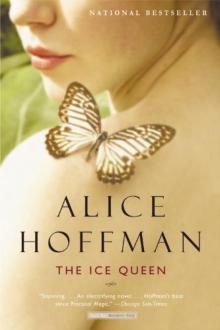 The Ice Queen
The Ice Queen Second Nature
Second Nature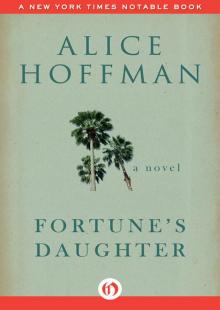 Fortune's Daughter: A Novel
Fortune's Daughter: A Novel Seventh Heaven
Seventh Heaven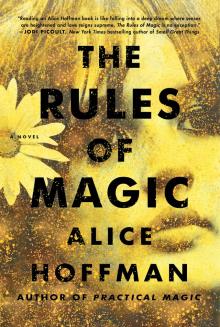 The Rules of Magic
The Rules of Magic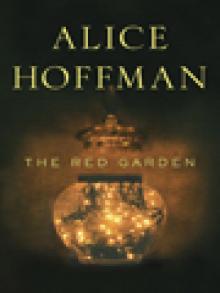 The Red Garden
The Red Garden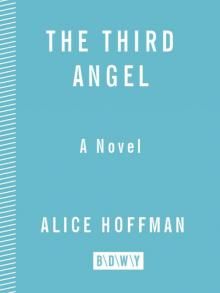 The Third Angel
The Third Angel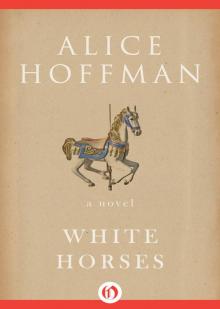 White Horses
White Horses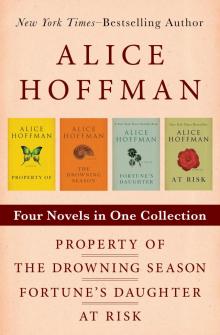 Property of / the Drowning Season / Fortune's Daughter / at Risk
Property of / the Drowning Season / Fortune's Daughter / at Risk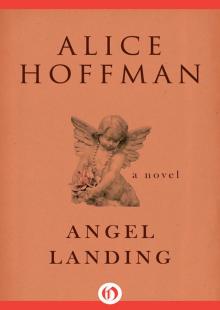 Angel Landing
Angel Landing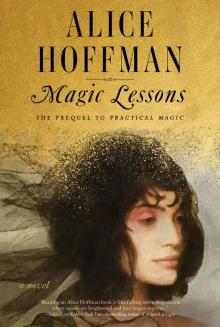 Magic Lessons
Magic Lessons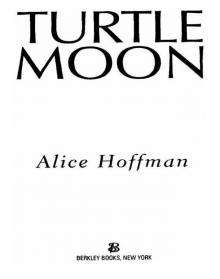 Turtle Moon
Turtle Moon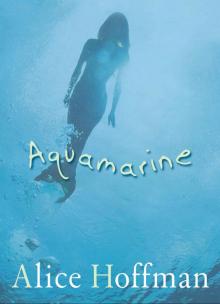 Aquamarine
Aquamarine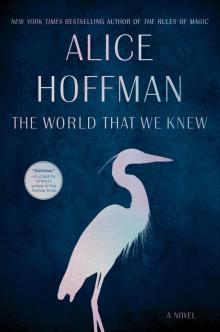 The World That We Knew
The World That We Knew Faithful
Faithful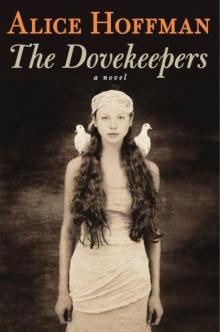 The Dovekeepers
The Dovekeepers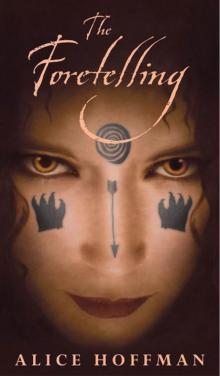 The Foretelling
The Foretelling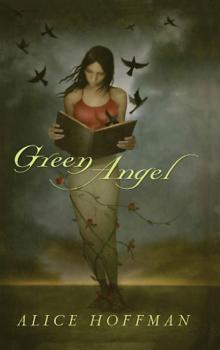 Green Angel
Green Angel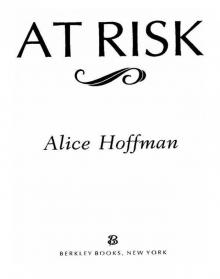 At Risk
At Risk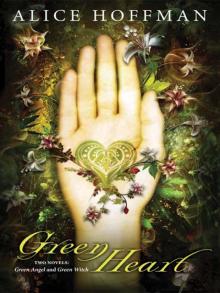 Green Heart
Green Heart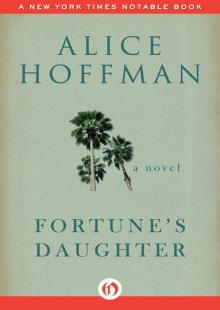 Fortune's Daughter
Fortune's Daughter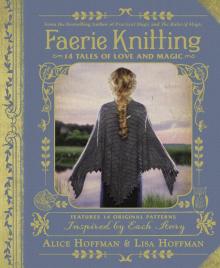 Faerie Knitting
Faerie Knitting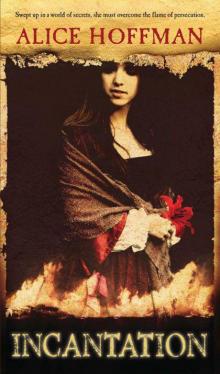 Incantation (v5)
Incantation (v5)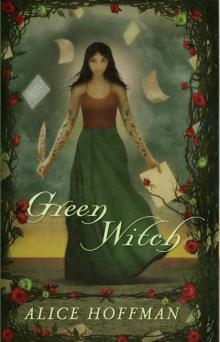 Green Witch
Green Witch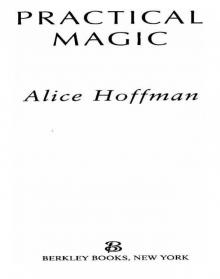 Practical Magic
Practical Magic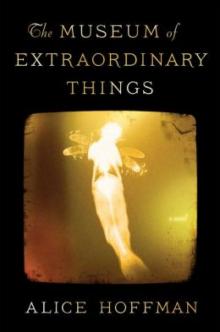 The Museum of Extraordinary Things
The Museum of Extraordinary Things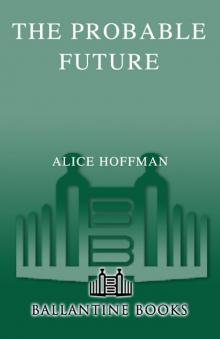 The Probable Future
The Probable Future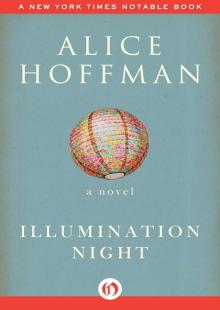 Illumination Night
Illumination Night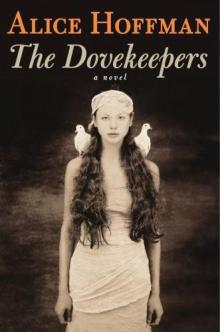 The Dovekeepers: A Novel
The Dovekeepers: A Novel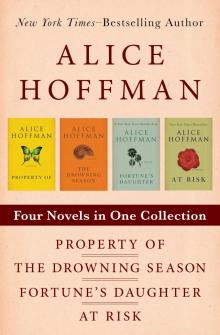 Property Of, the Drowning Season, Fortune's Daughter, and At Risk
Property Of, the Drowning Season, Fortune's Daughter, and At Risk